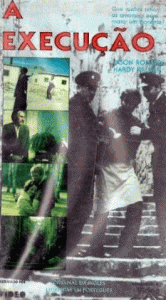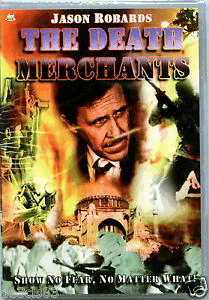From Monthly Film Bulletin, November 1975 (vol. 42, no. 502). This film has also been called The Death Merchants and The Spy Who Never Was. –- J.R.
Tod eines Fremden (The Execution)
West Germany/lsrael, 1972
Director: Reza S. Badiyi
Returning to Hamburg from a business trip, corporation lawyer Arthur Hersfeld is mistaken for Baruch Herzog, a non-existent Israeli agent invented by Israeli intelligence, and his cab from the airport is run off the road. He is given a lift into town by Amina, a French journalist calling herself Janine who works in the Arab underground and proceeds to investigate Hersfeld after dropping him off. Meeting her again, Arthur tells her that he knows she’s a spy, but a mutual attraction nevertheless develops between them. After a man named Zui Adam is murdered outside his home, and his office and house are ransacked, Arthur is questioned at the morgue by Inspector Barkan, who has been investigating Arab terrorist activity. Ordered to Berlin to kill Herzog, Amina buys a plane ticket for Hersfeld as well, and they have an affair; she talks about her family having been driven out of their home by Israelis and he tells her about his Jewish background, having been raised in New York after his father was killed by the Nazis. Arthur flies to Israel to try to get her parents’ property restored, only to discover that much of her story is false; Amina, meanwhile, has visited her brother in Israel, who refuses to join in her terrorist activities. Despite the warnings of Barkan, who has also flown to Israel, Arthur insists on seeing Amina, who refuses to cease her underground activity. Shortly afterwards in Jerusalem, Amina is informed that Herzog is in town and that she must kill him. On a deserted street, she calls out “Herzog” and Arthur turns around; she shoots him, and another Arab with a machine gun finishes him off.
With a seemingly computerized narrator introducing characters, explaining the plot, then repeating the obvious (“The man, Baruch Herzog, never existed: his shadowy counterpart was offered by fate .”), and yet another Muzak-accompanied lovers’ walk through an idyllic wood, The Execution has every right to be much worse than it actually is. A German-Israeli co-production directed by Iranian-born American TV veteran Reza S. Badiyi, and shot rather well by Tomislav Pinter, it benefits from fairly solid and watchable performances by Hardy Kruger, Jason Robards and the attractive Gila Almagar. While the love story between Jew and Arab seems partially intended to voice an appeal to conciliatory non-partisan sentiments, it’s equally evident that the former is allowed all the moral points and consistency. “Land doesn’t recognize ownership — so we mutilate each other”, Arthur Hersfeld ruefully remarks after giving Amina the lease to her old house in Jerusalem, to which she can respond only by pleading pathetically, “All I have left is hate. Please don’t take it away from me!” To highlight her intransigence, her own brother has already refused to help her and angrily denounced her (“More killing! I spit on you!”), and the anger of her superiors about her failure to kill the imaginary Herzog leads her, against all logic and reason, to kill Hersfeld. A project worthy of Stanley Kramer in more ways than one, The Execution clearly aims its energies at the heart rather than at the head, but never takes its characters or the issues they are intended to reflect very far past the point of capsule explanations.
JONATHAN ROSENBAUM



